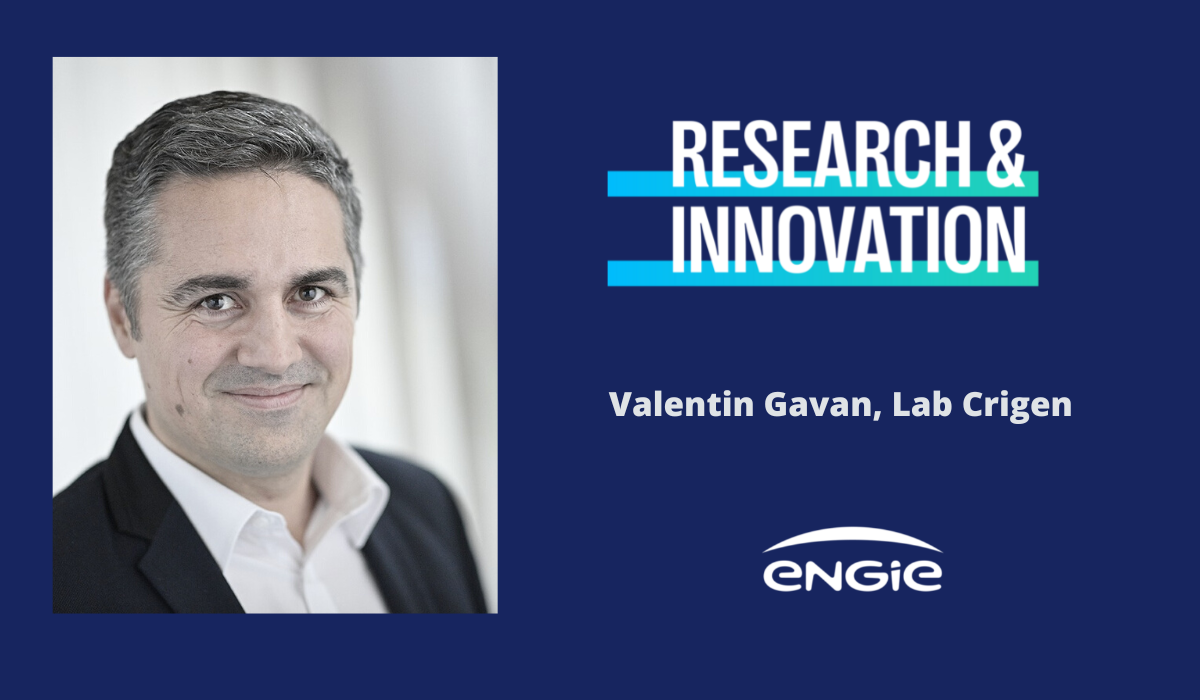

R&I’s central position within the Group is essential. If this vision is lacking, our Group risks losing its competitive and differentiating edge.
After studying engineering in Romania, I arrived in Lyon in 2004 as part of an exchange program between my engineering school in Bucharest and the National Institute of Applied Sciences (INSA) in Lyon, where I joined a research-led course. After completing my end-of-studies project at the Lyon Thermal Centre (CETHIL) Laboratory at INSA Lyon, I took a master and then a PhD in building physics. Specifically, my thesis was on the experimental and digital assessment of a double-skin façade for optimal control of thermal and visual comfort.
After finishing my studies in 2009, I wanted to continue working in research. After an initial role at a small company working on energy efficiency, I joined the ENGIE R&I department in 2010 to work on the energy efficiency of buildings. I am still part of this R&I family, in a team that has evolved to become the Crigen Lab’s Future Buildings and Cities Lab. I work as a project manager.
While the number of topics dealing with the building itself has decreased slightly, the buildings and their users are still our "end customer". I am also involved with the Expanders as a Key Expert on the energy efficiency of buildings and district energy systems (i.e. heating and cooling networks).
One aspect of my expertise is to assess, identify and quantify new energy solutions and architectures for the district. This research, development and innovation work is delivered to the GBUs and BUs to enhance the value proposition of their offers.
As well as these Research/Studies components, my input and expertise is increasingly focused on operations. I believe that a researcher in an industrial Group must step outside their traditional role (i.e. placing a particular phenomenon under the magnifying glass) to engage with the company's business. So I work with my GBU colleagues in the upstream phases of preparing our offers and responding to calls for tender. We have contributed to some recent successes, such as the Ohio State University and Ottawa projects, which was very exciting.
It is really important for me to be able to “translate” my expertise and knowledge and integrate them into differentiating offers that will generate business, contributing to the Group's development. Because if the Group has no value-added business, we will no longer be able to carry out research, and so on.
In addition to this focus on GBUs/BUs, our team is also involved in other operational research initiatives. For example, by integrating projects funded by the EU or consortia with the desire to bring external expertise to our internal projects, maximising our chances of success.
We also take part in international competitions to come up with innovative solutions and increase Group's visibility. In 2021, for instance, we took first prize in a competition launched by the city of Helsinki to decarbonise its urban heating network. ENGIE’s R&I department took part with a consortium led by Storengy and contributors from various internal entities, including ENGIE Impact, and external stakeholders.
I discovered this world of research step by step, while gaining expertise. I believe that doing great things requires a series of small steps. And research is a great fit for this way of working.
Clearly, most operational researchers are not there for the one revolutionary solution that will change the world. However, our role is obviously important. I think we can be likened to Pierre Rabhi's little hummingbird that “does its bit”* – in our case to decarbonise the energy systems of tomorrow.
So this is my main motivation!
My life revolves around my family! I have two 10-year-old girls, who take up a lot of my time. I try to be up to the task and there when it matters.
I also enjoy spending a lot of time outdoors, in nature. I am fortunate to have a garden and a small vegetable patch, which is my preferred way to de-stress. I grow tomatoes, zucchini... From the end of winter I sow, I plant, I harvest... Simple things: being outdoors and staying aware of my surroundings is a key thing for me. It gives me that balance that you really need in a highly digitised professional world.
R&I’s central position within the Group is essential. Our operational colleagues are often caught up in the Group’s fast-changing business. We need a structure that is detached from this operational sphere, while staying in touch with its needs and the business. This is the role of centralised research: it can provide know-how and a longer-term vision.
The Group needs all these elements. If this vision is lacking, our Group risks losing its competitive and differentiating edge.
Inspiration
Work
Motivation
I think we need to be able to do more things with less resources. Everything must be orchestrated to consume less and better, and to use nature’s gifts (sun, water, air, earth) as much as possible.
I always imagine myself doing “my bit” in the field of energy and energy efficiency. Perhaps with a new focus on development, but always with a technical component.
There is a phrase from the world of cooking, which inspires me and can be applied everywhere.
Alain Ducasse once said that “a good cook is one who gets his head down when the rush is on, but who can observe what’s happening and who will surreptitiously test new dishes”. For me, this attitude is very similar to that of researchers.
When you need me, I am there to bring my expertise. But at the same time, I try to experiment to move things forward or find new ways of doing things. And when I trust what I have found, I share it.
Sign up for the ENGIE Innovation Newsletter